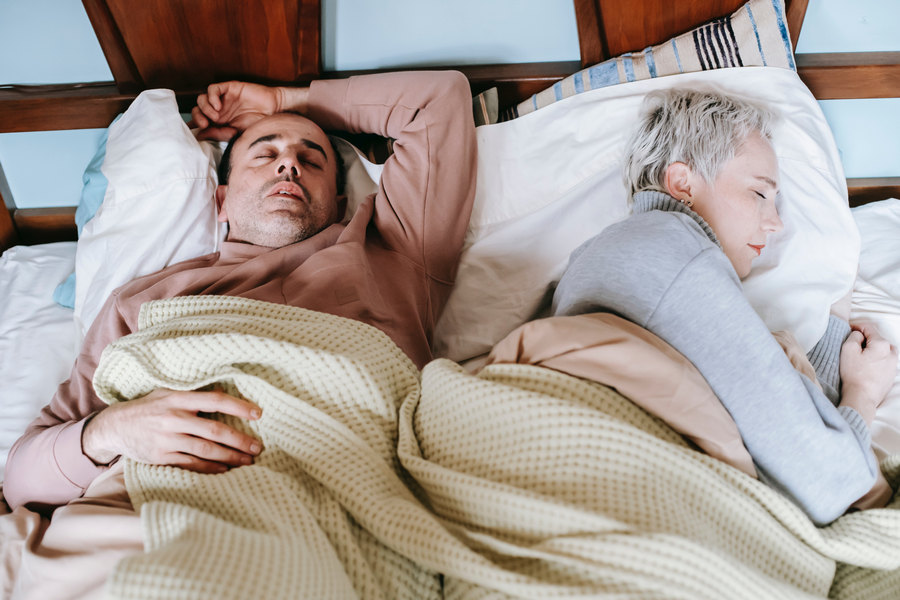


“What is sundowning in dementia” is a trending topic on the Internet. Dealing with sundowning is an issue among caregivers.
In 2020, Alzheimer’s disease affected nearly 5.8 million people in the United States. Sundowning is a common behavior among those with Alzheimer’s disease or other forms of dementia.
According to the Alzheimer’s Association research, about half of people with Alzheimer’s disease experience sundowning.

Sundowning is a set of behaviors that can occur in people with dementia (in this case, the elderly) because of complex cognitive processes during sunset hours.
It’s important to note that sundowning occurs more frequently in people diagnosed with degenerative disorders like Alzheimer’s and Parkinson’s. Because of the disorienting effects of the sun going down on Earth, it’s completely common with many people. However, it can be especially dangerous for the elderly.
Seniors with dementia may have difficulty sleeping at night or waking up early in the morning. They may also have trouble eating and drinking at mealtime. This behavior can make them feel unsafe, resulting in an increased risk of agitation and aggression directed toward caregivers or family members.

It’s important not to make assumptions about what causes sundowning; there are many theories about what might trigger this behavior in seniors with dementia. Some causes are:
Changes in Light or Darkness – Sundowning is triggered by changes in light or darkness. It can be a symptom of dementia, but it can also happen to people who don’t have dementia. Some people experience it more than others.
Changes in Hormone Levels – Some researchers have found that a person living with dementia may hear voices or see things that aren’t there during this time of day because of hormone level changes.
Brain Swelling – One theory is that the brain swells during the day, causing pressure on the brain stem and other areas in the back of the head. As it shrinks during the night, this pressure releases and causes confusion, anxiety, and irritability symptoms.
Lack of Sleep – Another theory suggests that it occurs when people with Alzheimer’s disease or another form of dementia don’t sleep well during the night. This lack of sleep makes them tired and irritable during the day when they’re awake again.

The symptoms of sundowning include:
Anxiety or agitation
Difficulty sleeping at night
Confusion about time or place
Restlessness or pacing around the house
Mood swings

Whatever the reason for sundowning may be, it’s important for caregivers—especially those who work overnight shifts—to understand how they can help their loved ones during these times of distress. Here are some tips:
Lighten Up – Reducing lighting in the home at night can help reduce agitation and confusion in seniors with dementia. Turn off all unnecessary lights, turn on nightlights and try using dimmer switches.
Some caregivers find that using amber-tinted light bulbs helps reduce agitation in seniors with dementia because they emit less blue light — which is believed to disrupt sleep cycles and aggravate Alzheimer’s disease symptoms.
Create Activities – Encourage them to try quiet activities like reading or listening to music.
If they’re having trouble sleeping due to sundowning behaviors, try using a white noise machine or fan to mask any sounds that might disturb them. You can also try moving their bedtime up by 15 minutes each day until they can fall asleep earlier in the evening.
Check Their Medication – Keep track of their medication schedule and dosage. Missed doses or changes in medication can trigger sundowning, so make sure you have a good idea of what medications your loved one is taking and when they should take them.
Keep Them Active – Encourage them to stay active throughout the day to be more likely to sleep well at night. Consider physical exercise, such as walking or playing games; social activities like visiting friends or going out for lunch; and mental stimulation by reading books or doing puzzles together.

Safety First – Make sure the place is safe. When your loved one becomes agitated, it’s important to make sure that they’re not at risk of hurting themselves or others. If they’re wandering around, lock doors and gates to keep them from going outside.
Install alarms on doors and windows so that they will sound if your loved one tries to open them. In addition, you can put locks on cabinets and drawers that contain dangerous items such as knives and medication.
If they’re getting aggressive, restrain them gently so that you can keep them safe until they calm down.
Appeal to Their Senses – Use familiar sounds, smells, and objects to comfort your loved one during confusion and fear. If possible, keep a nightlight in the hallway outside your loved one’s bedroom so they don’t get lost if they need to use the bathroom.
Stay Calm – Try not to argue with your loved one when they have a bad day or experiencing any dementia-related behavior change. Instead, try to distract them with something else — like making delicious food or watching television together as a family (or even just as friends). Try not to get angry or frustrated because this can make things worse!

This post should help caregivers by presenting some of the most common sundowning scenarios and general suggestions that caregivers can implement to minimize or eliminate these issues.
Given all this information, it should be clear that sundowning can be challenging. If a senior with dementia has sundowning symptoms, you must try your best to keep them safe.
For any additional information about care for seniors with dementia, contact Applewood Our House today.